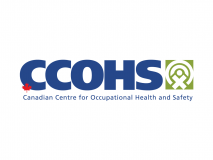Listed below are selected articles published by organizations external to the Institute for Work & Health (IWH) that mention the Institute’s work. This includes articles that report on IWH research and/or quote Institute researchers, as well as articles written by IWH researchers or staff. The organizations include general media, specialty media in the field of work injury and disability prevention, and prevention system partners. The list runs from the most recent to the oldest media mention. It is not exhaustive.

When job quality drops, death rates rise: new Canadian study
A new IWH study reinforces the importance of examining the health effects of job quality. It also underscores the need to look beyond the standard-versus-precarious-job binary and explore the other types of job quality in between.
Media outlet
Workers Health & Safety Centre
Date published

Labours lost: How opioid deaths are hollowing out the construction industry
For families, the tragedy of opioids is beyond measure. For Canada, the cost is tens of billions in lost productivity, reports Jason Kirby. The article also cites IWH's Dr. Nancy Carnide, who co-led research examining 13,700 opioid poisonings among 1.7 million people in Ontario who received workers compensation for injuries between 2006 and 2020.
Media outlet
The Globe and Mail
Date published

How employers can promote physical activity among workers: 3 messages based on research
We all know about the benefits of physical activity — not just to reduce the risks of chronic disease and physical injuries but also to improve mental health and productivity at work. But many people just don’t get as much physical activity as they should. Based on research conducted at the Institute for Work & Health, there are many ways employers can play a role to encourage physical activity as part of a healthy lifestyle. Even small changes, such as encouraging workers to move more than they currently do, can yield meaningful heart health benefits, writes IWH's Dr. Aviroop Biswas
Media outlet
The Conversation Canada
Date published

New $4.4-million program aims to help employers hire youth with disabilities
A federally funded initiative will help construction and manufacturing employers in Canada improve their ability to recruit and retain young workers with disabilities over the next three years. The “Transforming Workplace Systems to Build Sustainable Capacity for Inclusion of Diverse Youth” project will receive $4.44 million over 38 months, from February 2025 to March 2028, according to an announcement from the Institute for Work & Health (IWH) and Inclusive Design for Employment Access (IDEA). The funding comes from the Government of Canada’s Youth Employment and Skills Strategy Program, Todd Humber reports.
Media outlet
HR News Canada
Date published

Inclusive Design for Employment Access (IDEA) announces new project to enhance workplace capacity to employ youth with disabilities
A new multi-year project is reportedly underway to help workplaces in Canada’s manufacturing sector retool their systems to better include youth with disabilities — especially neurodiverse youth, youth with intellectual disabilities and youth with mental health challenges. The project, co-led by Inclusive Design for Employment Access (IDEA) and the Centre for Industrial Relations and Human Resources (CIRHR) at the University of Toronto, will focus on reshaping workplace systems to build the capacity of workplaces to employ persons with disabilities.
Media outlet
Canadian Manufacturing
Date published

New insights on mental health and workforce participation
As Shane Mercer reports, Institute for Work & Health associate scientist Dr. Kathleen Dobson unveils findings from a landmark study that tracks the long-term employment trajectories of Canadians with common mental disorders, severe mental disorders, and substance use disorders. 'Having a mental illness does not mean that people cannot be gainfully employed,' Dobson says.
Media outlet
Canadian Occupational Safety
Date published

The link between job quality and "deaths of despair"
In recent years, Canada has seen troubling increases in what researchers call “deaths of despair,” fatalities caused by suicide, drug poisoning, and alcohol use. An ongoing study from the Institute for Work and Health (IWH) explores the connection between these deaths and job quality. To date, the findings have revealed that workers in low-quality, unstable work situations face much higher risks of dying from these causes than those in well-paid, stable jobs.
Media outlet
Canadian Centre for Occupational Health and Safety
Date published

A matter of substance in OSH
Whether it’s cocaine, opioids, prescription medications or performance-enhancing substances, drug use among workers is a challenge for workplaces globally. An article by Katie Smith explores the impact of drugs on workers and workplaces globally, and what the implications are for OSH practitioners. It includes findings from a joint project by the Institute for Work & Health and the Occupational Cancer Research Centre, which indicate that injured workers had higher rates of opioid-related harm compared with individuals of working age in the general population.
Media outlet
IOSH Magazine
Date published
Link to source

Share health info or not? Free tool helps workers decide
A new online tool from Canada’s Institute for Work and Health is intended to help people consider whether to disclose personal health information at work. The free Decision-Support for Communicating about Invisible Disabilities that are Episodic (DCIDE) provides personalized guidance for people grappling with disclosure questions.
Media outlet
Safety+Health
Date published

Prescription for pain: How standing takes its toll on pharmacists
Pharmacists can spend an average of eight to 12 hours per day on their feet, often in a static position. Yet, the effects of prolonged standing remain “hidden” because they develop gradually. Standing for long periods has become normalized in pharmacy culture and is overshadowed by other workplace concerns, writes Marina Rowbotham, citing research by IWH's Dr. Peter Smith.
Media outlet
Canadian Healthcare Network
Date published